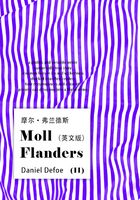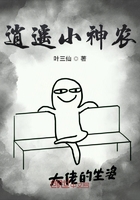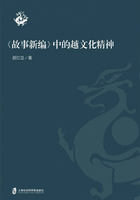"Well, if some ball were to hit him," he muttered, "our business would be settled. There would be no necessity to supercede him, eh? and it would be no fault of ours."
But Felicite shuddered. She felt that she had just condemned a man to death. If Monsieur Peirotte should now be killed, she would always see his ghost at night time. He would come and haunt her. So she only ventured to cast furtive glances, full of fearful delight, at the unhappy man's windows. Henceforward all her enjoyment would be fraught with a touch of guilty terror.
Moreover, Pierre, having now poured out his soul, began to perceive the other side of the situation. He mentioned Macquart. How could they get rid of that blackguard? But Felicite, again fired with enthusiasm, exclaimed: "Oh! one can't do everything at once. We'll gag him, somehow. We'll soon find some means or other."
She was now walking to and fro, putting the arm-chairs in order, and dusting their backs. Suddenly, she stopped in the middle of the room, and gave the faded furniture a long glance.
"Good Heavens!" she said, "how ugly it is here! And we shall have everybody coming to call upon us!"
"Bah!" replied Pierre, with supreme indifference, "we'll alter all that."
He who, the night before, had entertained almost religious veneration for the arm-chairs and the sofa, would now have willingly stamped on them. Felicite, who felt the same contempt, even went so far as to upset an arm-chair which was short of a castor and did not yield to her quickly enough.
It was at this moment that Roudier entered. It at once occurred to the old woman that he had become much more polite. His "Monsieur" and "Madame" rolled forth in delightfully musical fashion. But the other habitues were now arriving one after the other; and the drawing-room was fast getting full. Nobody yet knew the full particulars of the events of the night, and all had come in haste, with wondering eyes and smiling lips, urged on by the rumours which were beginning to circulate through the town. These gentlemen who, on the previous evening, had left the drawing-room with such precipitation at the news of the insurgents' approach, came back, inquisitive and importunate, like a swarm of buzzing flies which a puff of wind would have dispersed. Some of them had not even taken time to put on their braces. They were very impatient, but it was evident that Rougon was waiting for some one else before speaking out. He constantly turned an anxious look towards the door. For an hour there was only significant hand-shaking, vague congratulation, admiring whispering, suppressed joy of uncertain origin, which only awaited a word of enlightenment to turn to enthusiasm.
At last Granoux appeared. He paused for a moment on the threshold, with his right hand pressed to his breast between the buttons of his frock-coat; his broad pale face was beaming; in vain he strove to conceal his emotion beneath an expression of dignity. All the others became silent on perceiving him; they felt that something extraordinary was about to take place. Granoux walked straight up to Rougon, through two lines of visitors, and held out his hand to him.
"My friend," he said, "I bring you the homage of the Municipal Council. They call you to their head, until our mayor shall be restored to us. You have saved Plassans. In the terrible crisis through which we are passing we want men who, like yourself, unite intelligence with courage. Come—"
At this point Granoux, who was reciting a little speech which he had taken great trouble to prepare on his way from the Town Hall to the Rue de la Banne felt his memory fail him. But Rougon, overwhelmed with emotion, broke in, shaking his hand and repeating: "Thank you, my dear Granoux; I thank you very much."
He could find nothing else to say. However, a loud burst of voices followed. Every one rushed upon him, tried to shake hands, poured forth praises and compliments, and eagerly questioned him. But he, already putting on official dignity, begged for a few minutes' delay in order that he might confer with Messieurs Granoux and Roudier. Business before everything. The town was in such a critical situation! Then the three accomplices retired to a corner of the drawing-room, where, in an undertone, they divided power amongst themselves; the rest of the visitors, who remained a few paces away, trying meanwhile to look extremely wise and furtively glancing at them with mingled admiration and curiosity. It was decided that Rougon should take the title of president of the Municipal Commission; Granoux was to be secretary; whilst, as for Roudier, he became commander-in-chief of the reorganised National Guard. They also swore to support each other against all opposition.
However, Felicite, who had drawn near, abruptly inquired: "And Vuillet?"
At this they looked at each other. Nobody had seen Vuillet. Rougon seemed somewhat uneasy.
"Perhaps they've taken him away with the others," he said, to ease his mind.
But Felicite shook her head. Vuillet was not the man to let himself be arrested. Since nobody had seen or heard him, it was certain he had been doing something wrong.
Suddenly the door opened and Vuillet entered, bowing humbly, with blinking glance and stiff sacristan's smile. Then he held out his moist hand to Rougon and the two others.
Vuillet had settled his little affairs alone. He had cut his own slice out of the cake, as Felicite would have said. While peeping through the ventilator of his cellar he had seen the insurgents arrest the postmaster, whose offices were near his bookshop. At daybreak, therefore, at the moment when Rougon was comfortably seated in the mayor's arm-chair, he had quietly installed himself in the postmaster's office. He knew the clerks; so he received them on their arrival, told them that he would replace their chief until his return, and that meantime they need be in nowise uneasy. Then he ransacked the morning mail with ill-concealed curiosity. He examined the letters, and seemed to be seeking a particular one. His new berth doubtless suited his secret plans, for his satisfaction became so great that he actually gave one of the clerks a copy of the "Oeuvres Badines de Piron." Vuillet, it should be mentioned, did business in objectionable literature, which he kept concealed in a large drawer, under the stock of heads and religious images. It is probable that he felt some slight qualms at the free-and-easy manner in which he had taken possession of the post office, and recognised the desirability of getting his usurpation confirmed as far as possible. At all events, he had thought it well to call upon Rougon, who was fast becoming an important personage.
"Why! where have you been?" Felicite asked him in a distrustful manner.
Thereupon he related his story with sundry embellishments. According to his own account he had saved the post-office from pillage.
"All right then! That's settled! Stay on there!" said Pierre, after a moment's reflection. "Make yourself useful."
This last sentence revealed the one great fear that possessed the Rougons. They were afraid that some one might prove too useful, and do more than themselves to save the town. Still, Pierre saw no serious danger in leaving Vuillet as provisional postmaster; it was even a convenient means of getting rid of him. Felicite, however, made a sharp gesture of annoyance.
The consultation having ended, the three accomplices mingled with the various groups that filled the drawing-room. They were at last obliged to satisfy the general curiosity by giving detailed accounts of recent events. Rougon proved magnificent. He exaggerated, embellished, and dramatised the story which he had related to his wife. The distribution of the guns and cartridges made everybody hold their breath. But it was the march through the deserted streets and the seizure of the town-hall that most amazed these worthy bourgeois. At each fresh detail there was an interruption.
"And you were only forty-one; it's marvellous!"
"Ah, indeed! it must have been frightfully dark!"
"No; I confess I never should have dared it!"
"Then you seized him, like that, by the throat?
"And the insurgents, what did they say?"
These remarks and questions only incited Rougon's imagination the more. He replied to everybody. He mimicked the action. This stout man, in his admiration of his own achievements, became as nimble as a schoolboy; he began afresh, repeated himself, amidst the exclamations of surprise and individual discussions which suddenly arose about some trifling detail. And thus he continued blowing his trumpet, making himself more and more important as if some irresistible force impelled him to turn his narrative into a genuine epic. Moreover Granoux and Roudier stood by his side prompting him, reminding him of such trifling matters as he omitted. They also were burning to put in a word, and occasionally they could not restrain themselves, so that all three went on talking together. When, in order to keep the episode of the broken mirror for the denouement, like some crowning glory, Rougon began to describe what had taken place downstairs in the courtyard, after the arrest of the guard, Roudier accused him of spoiling the narrative by changing the sequence of events. For a moment they wrangled about it somewhat sharply. Then Roudier, seeing a good opportunity for himself, suddenly exclaimed: "Very well, let it be so. But you weren't there. So let me tell it."
He thereupon explained at great length how the insurgents had awoke, and how the muskets of the town's deliverers had been levelled at them to reduce them to impotence. He added, however, that no blood, fortunately, had been shed. This last sentence disappointed his audience, who had counted upon one corpse at least.
"But I thought you fired," interrupted Felicite, recognising that the story was wretchedly deficient in dramatic interest.
"Yes, yes, three shots," resumed the old hosier. "The pork-butcher Dubruel, Monsieur Lievin, and Monsieur Massicot discharged their guns with really culpable alacrity." And as there were some murmurs at this remark; "Culpable, I repeat the word," he continued. "There are quite enough cruel necessities in warfare without any useless shedding of blood. Besides, these gentlemen swore to me that it was not their fault; they can't understand how it was their guns went off. Nevertheless, a spent ball after ricocheting grazed the cheek of one of the insurgents and left a mark on it."
This graze, this unexpected wound, satisfied the audience. Which cheek, right or left, had been grazed, and how was it that a bullet, a spent one, even, could strike a cheek without piercing it? These points supplied material for some long discussions.
"Meantime," continued Rougon at the top of his voice, without giving time for the excitement to abate; "meantime we had plenty to do upstairs. The struggle was quite desperate."
Then he described, at length, the arrival of his brother and the four other insurgents, without naming Macquart, whom he simply called "the leader." The words, "the mayor's office," "the mayor's arm-chair," "the mayor's writing table," recurred to him every instant, and in the opinion of his audience imparted marvellous grandeur to the terrible scene. It was not at the porter's lodge that the fight was now being waged, but in the private sanctum of the chief magistrate of the town. Roudier was quite cast in to the background. Then Rougon at last came to the episode which he had been keeping in reserve from the commencement, and which would certainly exalt him to the dignity of a hero.
"Thereupon," said he, "an insurgent rushes upon me. I push the mayor's arm-chair away, and seize the man by the throat. I hold him tightly, you may be sure of it! But my gun was in my way. I didn't want to let it drop; a man always sticks to his gun. I held it, like this, under the left arm. All of a sudden, it went off—"
The whole audience hung on Rougon's lips. But Granoux, who was opening his mouth wide with a violent itching to say something, shouted: "No, no, that isn't right. You were not in a position to see things, my friend; you were fighting like a lion. But I saw everything, while I was helping to bind one of the prisoners. The man tried to murder you; it was he who fired the gun; I saw him distinctly slip his black fingers under your arm."
"Really?" said Rougon, turning quite pale.
He did not know he had been in such danger, and the old almond merchant's account of the incident chilled him with fright. Granoux, as a rule, did not lie; but, on a day of battle, it is surely allowable to view things dramatically.
"I tell you the man tried to murder you," he repeated, with conviction.
"Ah," said Rougon in a faint voice, "that's how it is I heard the bullet whiz past my ear!"
At this, violent emotion came upon the audience. Everybody gazed at the hero with respectful awe. He had heard a bullet whiz past his ear! Certainly, none of the other bourgeois who were there could say as much. Felicite felt bound to rush into her husband's arms so as to work up the emotion to boiling point. But Rougon immediately freed himself, and concluded his narrative with this heroic sentence, which has become famous at Plassans: "The shot goes off; I hear the bullet whiz past my ear; and whish! it smashes the mayor's mirror."
This caused complete consternation. Such a magnificent mirror, too! It was scarcely credible! the damage done to that looking-glass almost out-balanced Rougon's heroism, in the estimation of the company. The glass became an object of absorbing interest, and they talked about it for a quarter of an hour, with many exclamations and expressions of regret, as though it had been some dear friend that had been stricken to the heart. This was the culminating point that Rougon had aimed at, the denouement of his wonderful Odyssey. A loud hubbub of voices filled the yellow drawing-room. The visitors were repeating what they had just heard, and every now and then one of them would leave a group to ask the three heroes the exact truth with regard to some contested incident. The heroes set the matter right with scrupulous minuteness, for they felt that they were speaking for history!
At last Rougon and his two lieutenants announced that they were expected at the town-hall. Respectful silence was then restored, and the company smiled at each other discreetly. Granoux was swelling with importance. He was the only one who had seen the insurgent pull the trigger and smash the mirror; this sufficed to exalt him, and almost made him burst his skin. On leaving the drawing-room, he took Roudier's arm with the air of a great general who is broken down with fatigue. "I've been up for thirty-six hours," he murmured, "and heaven alone knows when I shall get to bed!"
Rougon, as he withdrew, took Vuillet aside and told him that the party of order relied more than ever on him and the "Gazette." He would have to publish an effective article to reassure the inhabitants and treat the band of villains who had passed through Plassans as it deserved.
"Be easy!" replied Vuillet. "In the ordinary course the 'Gazette' ought not to appear till to-morrow morning, but I'll issue it this very evening."
When the leaders had left, the rest of the visitors remained in the yellow drawing-room for another moment, chattering like so many old women, whom the escape of a canary has gathered together on the pavement. These retired tradesmen, oil dealers, and wholesale hatters, felt as if they were in a sort of fairyland. Never had they experienced such thrilling excitement before. They could not get over their surprise at discovering such heroes as Rougon, Granoux, and Roudier in their midst. At last, half stifled by the stuffy atmosphere, and tired of ever telling each other the same things, they decided to go off and spread the momentous news abroad. They glided away one by one, each anxious to have the glory of being the first to know and relate everything, and Felicite, as she leaned out of the window, on being left alone, saw them dispersing in the Rue de la Banne, waving their arms in an excited manner, eager as they were to diffuse emotion to the four corners of the town.
It was ten o'clock, and Plassans, now wide awake, was running about the streets, wildly excited by the reports which were circulating. Those who had seen or heard the insurrectionary forces, related the most foolish stories, contradicting each other, and indulging in the wildest suppositions. The majority, however, knew nothing at all about the matter; they lived at the further end of the town, and listened with gaping mouths, like children to a nursery tale, to the stories of how several thousand bandits had invaded the streets during the night and vanished before daybreak like an army of phantoms. A few of the most sceptical said: "Nonsense!" Yet some of the details were very precise; and Plassans at last felt convinced that some frightful danger had passed over it while it slept. The darkness which had shrouded this danger, the various contradictory reports that spread, all invested the matter with mystery and vague horror, which made the bravest shudder. Whose hand had diverted the thunderbolt from them? There seemed to be something quite miraculous about it. There were rumours of unknown deliverers, of a handful of brave men who had cut off the hydra's head; but no one seemed acquainted with the exact particulars, and the whole story appeared scarcely credible, until the company from the yellow drawing-room spread through the streets, scattering tidings, ever repeating the same narrative at each door they came to.
It was like a train of powder. In a few minutes the story had spread from one end of the town to the other. Rougon's name flew from mouth to mouth, with exclamations of surprise in the new town, and of praise in the old quarter. The idea of being without a sub-prefect, a mayor, a postmaster, a receiver of taxes, or authorities of any kind, at first threw the inhabitants into consternation. They were stupefied at having been able to sleep through the night and get up as usual, in the absence of any settled government. Their first stupor over, they threw themselves recklessly into the arms of their liberators. The few Republicans shrugged their shoulders, but the petty shopkeepers, the small householders, the Conservatives of all shades, invoked blessings on those modest heroes whose achievements had been shrouded by the night. When it was known that Rougon had arrested his own brother, the popular admiration knew no bounds. People talked of Brutus, and thus the indiscretion which had made Pierre rather anxious, really redounded to his glory. At this moment when terror still hovered over them, the townsfolk were virtually unanimous in their gratitude. Rougon was accepted as their saviour without the slightest show of opposition.
"Just think of it!" the poltroons exclaimed, "there were only forty-one of them!"
That number of forty-one amazed the whole town, and this was the origin of the Plassans legend of how forty-one bourgeois had made three thousand insurgents bite the dust. There were only a few envious spirits of the new town, lawyers without work and retired military men ashamed of having slept ingloriously through that memorable night, who raised any doubts. The insurgents, these sceptics hinted, had no doubt left the town of their own accord. There were no indications of a combat, no corpses, no blood-stains. So the deliverers had certainly had a very easy task.
"But the mirror, the mirror!" repeated the enthusiasts. "You can't deny that the mayor's mirror has been smashed; go and see it for yourselves."
And, in fact, until night-time, quite a stream of town's-people flowed, under one pretext or another, into the mayor's private office, the door of which Rougon left wide open. The visitors planted themselves in front of the mirror, which the bullet had pierced and starred, and they all gave vent to the same exclamation: "By Jove; that ball must have had terrible force!"
Then they departed quite convinced.
Felicite, at her window, listened with delight to all the rumours and laudatory and grateful remarks which arose from the town. At that moment all Plassans was talking of her husband. She felt that the two districts below her were quivering, wafting her the hope of approaching triumph. Ah! how she would crush that town which she had been so long in getting beneath her feet! All her grievances crowded back to her memory, and her past disappointments redoubled her appetite for immediate enjoyment.
At last she left the window, and walked slowly round the drawing-room. It was there that, a little while previously, everybody had held out their hands to her husband and herself. He and she had conquered; the citizens were at their feet. The yellow drawing-room seemed to her a holy place. The dilapidated furniture, the frayed velvet, the chandelier soiled with fly-marks, all those poor wrecks now seemed to her like the glorious bullet-riddled debris of a battle-field. The plain of Austerlitz would not have stirred her to deeper emotion.
When she returned to the window, she perceived Aristide wandering about the place of the Sub-Prefecture, with his nose in the air. She beckoned to him to come up, which he immediately did. It seemed as if he had only been waiting for this invitation.
"Come in," his mother said to him on the landing, seeing that he hesitated. "Your father is not here."
Aristide evinced all the shyness of a prodigal son returning home. He had not been inside the yellow drawing-room for nearly four years. He still carried his arm in a sling.
"Does your hand still pain you?" his mother asked him, ironically.
He blushed as he answered with some embarrassment: "Oh! it's getting better; it's nearly well again now."
Then he lingered there, loitering about and not knowing what to say. Felicite came to the rescue. "I suppose you've heard them talking about your father's noble conduct?" she resumed.
He replied that the whole town was talking of it. And then, as he regained his self-possession, he paid his mother back for her raillery in her own coin. Looking her full in the face he added: "I came to see if father was wounded."
"Come, don't play the fool!" cried Felicite, petulantly. "If I were you I would act boldly and decisively. Confess now that you made a false move in joining those good-for-nothing Republicans. You would be very glad, I'm sure, to be well rid of them, and to return to us, who are the stronger party. Well, the house is open to you!"
But Aristide protested. The Republic was a grand idea. Moreover, the insurgents might still carry the day.
"Don't talk nonsense to me!" retorted the old woman, with some irritation. "You're afraid that your father won't have a very warm welcome for you. But I'll see to that. Listen to me: go back to your newspaper, and, between now and to-morrow, prepare a number strongly favouring the Coup d'Etat. To-morrow evening, when this number has appeared, come back here and you will be received with open arms."
Then seeing that the young man remained silent: "Do you hear?" she added, in a lower and more eager tone; "it is necessary for our sake, and for your own, too, that it should be done. Don't let us have any more nonsense and folly. You've already compromised yourself enough in that way."
The young man made a gesture—the gesture of a Caesar crossing the Rubicon—and by doing so escaped entering into any verbal engagement. As he was about to withdraw, his mother, looking for the knot in his sling, remarked: "First of all, you must let me take off this rag. It's getting a little ridiculous, you know!"
Aristide let her remove it. When the silk handkerchief was untied, he folded it neatly and placed it in his pocket. And as he kissed his mother he exclaimed: "Till to-morrow then!"
In the meanwhile, Rougon was taking official possession of the mayor's offices. There were only eight municipal councillors left; the others were in the hands of the insurgents, as well as the mayor and his two assessors. The eight remaining gentlemen, who were all on a par with Granoux, perspired with fright when the latter explained to them the critical situation of the town. It requires an intimate knowledge of the kind of men who compose the municipal councils of some of the smaller towns, in order to form an idea of the terror with which these timid folk threw themselves into Rougon's arms. At Plassans, the mayor had the most incredible blockheads under him, men without any ideas of their own, and accustomed to passive obedience. Consequently, as Monsieur Garconnet was no longer there, the municipal machine was bound to get out of order, and fall completely under the control of the man who might know how to set it working. Moreover, as the sub-prefect had left the district, Rougon naturally became sole and absolute master of the town; and thus, strange to relate, the chief administrative authority fell into the hands of a man of indifferent repute, to whom, on the previous evening, not one of his fellow-citizens would have lent a hundred francs.
Pierre's first act was to declare the Provisional Commission "en permanence." Then he gave his attention to the organisation of the national guard, and succeeded in raising three hundred men. The hundred and nine muskets left in the cart-shed were also distributed to volunteers, thereby bringing up the number of men armed by the reactionary party to one hundred and fifty; the remaining one hundred and fifty guards consisted of well-affected citizens and some of Sicardot's soldiers. When Commander Roudier reviewed the little army in front of the town-hall, he was annoyed to see the market-people smiling in their sleeves. The fact is that several of his men had no uniforms, and some of them looked very droll with their black hats, frock-coats, and muskets. But, at any rate, they meant well. A guard was left at the town-hall and the rest of the forces were sent in detachments to the various town gates. Roudier reserved to himself the command of the guard stationed at the Grand'-Porte, which seemed to be more liable to attack than the others.
Rougon, who now felt very conscious of his power, repaired to the Rue Canquoin to beg the gendarmes to remain in their barracks and interfere with nothing. He certainly had the doors of the gendarmerie opened—the keys having been carried off by the insurgents—but he wanted to triumph alone, and had no intention of letting the gendarmes rob him of any part of his glory. If he should really have need of them he could always send for them. So he explained to them that their presence might tend to irritate the working-men and thus aggravate the situation. The sergeant in command thereupon complimented him on his prudence. When Rougon was informed that there was a wounded man in the barracks, he asked to see him, by way of rendering himself popular. He found Rengade in bed, with his eye bandaged, and his big moustaches just peeping out from under the linen. With some high-sounding words about duty, Rougon endeavoured to comfort the unfortunate fellow who, having lost an eye, was swearing with exasperation at the thought that his injury would compel him to quit the service. At last Rougon promised to send the doctor to him.
"I'm much obliged to you, sir," Rengade replied; "but, you know, what would do me more good than any quantity of doctor's stuff would be to wring the neck of the villain who put my eye out. Oh! I shall know him again; he's a little thin, palish fellow, quite young."
Thereupon Pierre bethought himself of the blood he had seen on Silvere's hand. He stepped back a little, as though he was afraid that Rengade would fly at his throat, and cry: "It was your nephew who blinded me; and you will have to pay for it." And whilst he was mentally cursing his disreputable family, he solemnly declared that if the guilty person were found he should be punished with all the rigour of the law.
"No, no, it isn't worth all that trouble," the one-eyed man replied; "I'll just wring his neck for him when I catch him."
Rougon hastened back to the town-hall. The afternoon was employed in taking various measures. The proclamation posted up about one o'clock produced an excellent impression. It ended by an appeal to the good sense of the citizens, and gave a firm assurance that order would not again be disturbed. Until dusk, in fact, the streets presented a picture of general relief and perfect confidence. On the pavements, the groups who were reading the proclamation exclaimed:
"It's all finished now; we shall soon see the troops who have been sent in pursuit of the insurgents."
This belief that some soldiers were approaching was so general that the idles of the Cours Sauvaire repaired to the Nice road, in order to meet and hear the regimental band. But they returned at nightfall disappointed, having seen nothing; and then a feeling of vague alarm began to disturb the townspeople.















